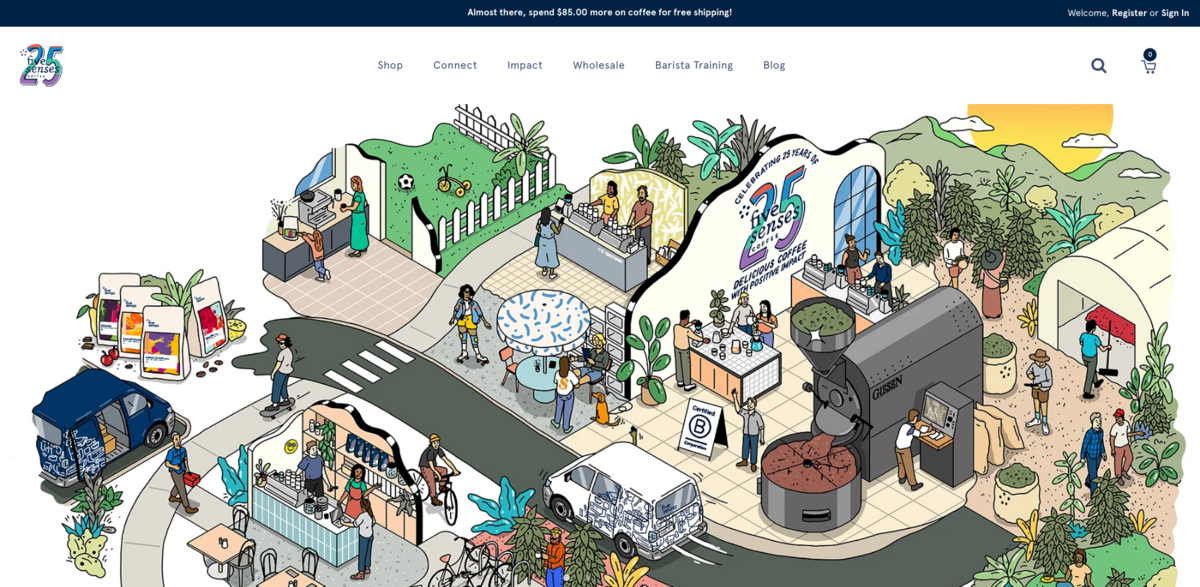What is the Wholesale Coffee Project?
There’s a whole world of coffee lovers and quality-focused cafes out there, and this project taps right into that passion. No matter where you find yourself, the goal is simple: connect with those who appreciate freshly roasted, delicious coffees. The project revolves around building wholesale coffee partnerships that bring specialty coffee to cafes and businesses eager to serve something exceptional. It’s about more than just coffee—it’s about creating relationships and sharing a love for quality brews.
Main Benefits of the Project
Here’s a quick snapshot of what makes this project stand out:
- B Corp certification with a score of 101.7, highlighting a strong commitment to social and environmental responsibility.
- Carbon Neutral status, showing dedication to sustainable business practices and climate action.
- Ownership and traceability through the Tiga Raja Mill in northern Sumatra, supporting local farming cooperatives.
- Focus on Impacting People Positively (IPP) by nurturing communities from coffee origin to destination.
- Active participation in a Reconciliation Action Plan to promote equality for Aboriginal and Torres Strait Islander peoples.
Impacting People Positively Through Coffee
At the heart of this project is a deep understanding of the challenges faced at the coffee origin. It’s not just about the beans—it’s about the people behind them. The driving purpose is to Impact People Positively by fostering strong communities connected through specialty coffee. This means supporting farmers, workers, and everyone involved in the journey, ensuring they’re equipped and empowered. It’s a vision that goes beyond the cup, aiming to create lasting social value.
B Corporation: Business for Good
Being a B Corp isn’t just a badge; it’s a commitment to the highest standard of social corporate responsibility. This certification reflects a genuine desire to use business as a force for good. The project builds trust with suppliers, communities, and consumers alike, believing that every action should contribute to meaningful social and environmental change. The certification process is ongoing, with regular holistic reviews pushing for even greater positive outcomes.
Carbon Neutral Commitment
In recent years, the project has doubled down on sustainability. The focus is on creating a business model that’s honest—to the people involved and to the planet itself. Officially recognized as Carbon Neutral, the project takes climate action seriously and aims to be a voice and platform for environmental restoration. It’s a proud milestone, but also a stepping stone toward even more sustainable practices in the future.
Project Impact and Sustainable Development Goals (SDGs)
- SDG 1: No Poverty – Supporting local farming cooperatives and communities to move beyond poverty.
- SDG 8: Decent Work and Economic Growth – Creating fair ownership and traceability through the Tiga Raja Mill.
- SDG 12: Responsible Consumption and Production – Emphasizing sustainable coffee sourcing and carbon neutrality.
- SDG 13: Climate Action – Commitment to carbon neutrality and environmental restoration.
- SDG 10: Reduced Inequalities – Advancing reconciliation and equality for Indigenous peoples through a Reconciliation Action Plan.
Reconciliation Action Plan and Social Engagement
Part of the project’s mission is to engage positively with society, especially focusing on reconciliation and equality for Aboriginal and Torres Strait Islander peoples. By joining a network of over 1,100 organisations, the project commits to developing and implementing a Reconciliation Action Plan (RAP). This isn’t just a formality—it’s a strategic approach to acknowledge Indigenous rhythms and make meaningful decisions that reflect respect and inclusion in everyday operations.


















